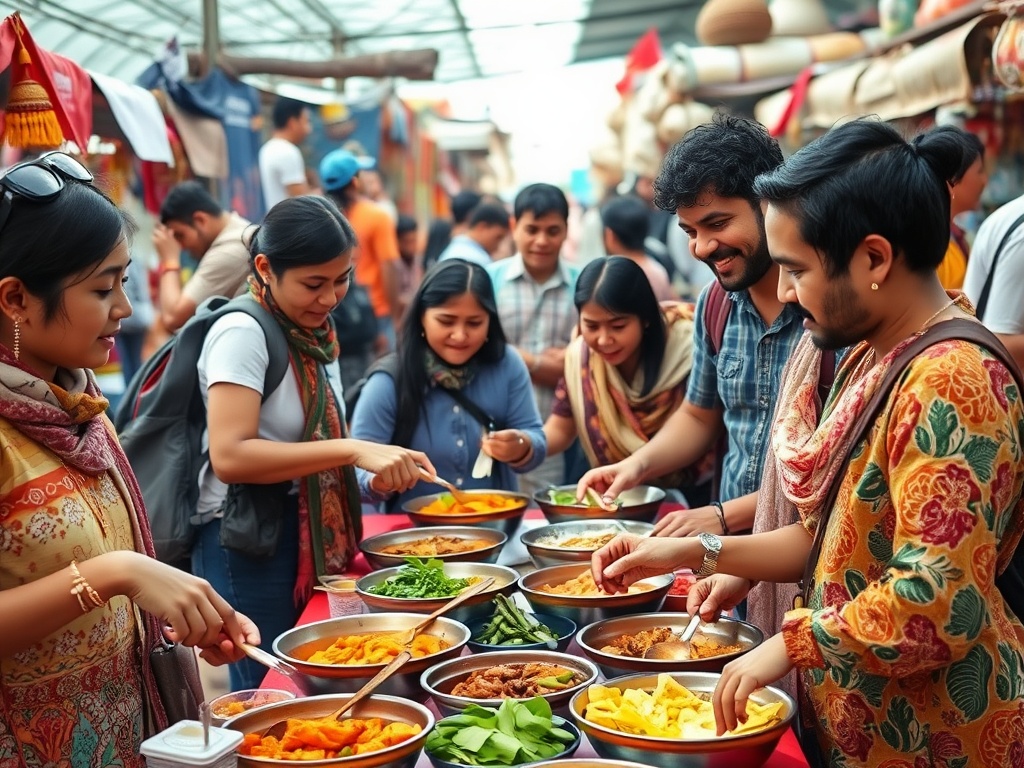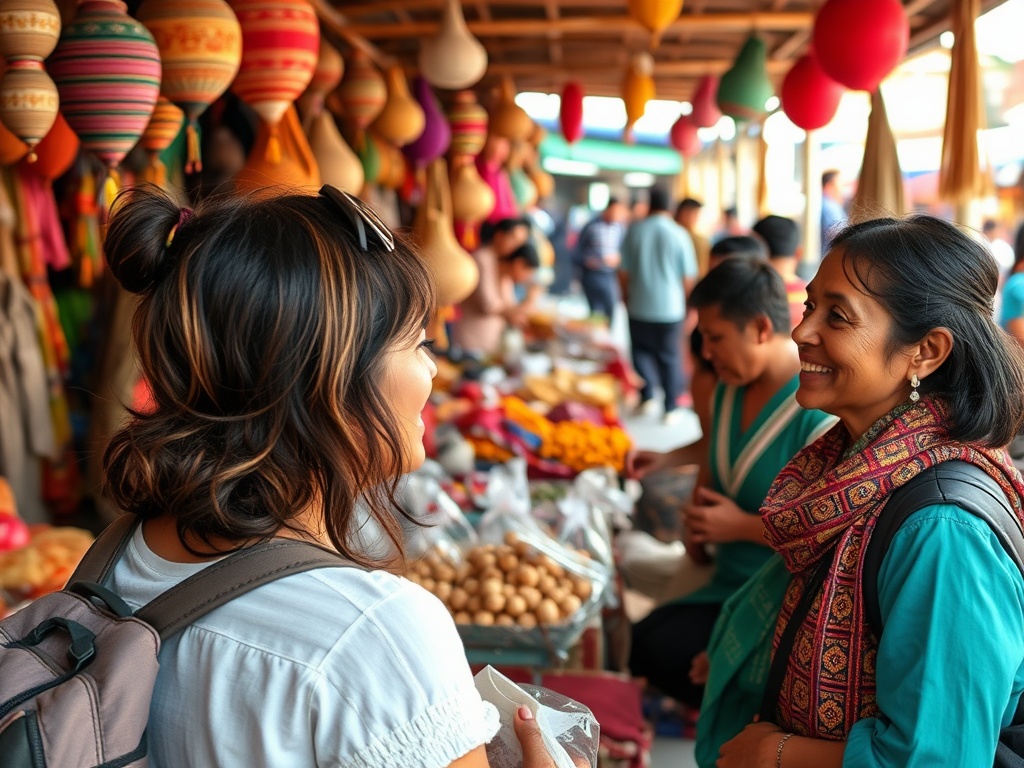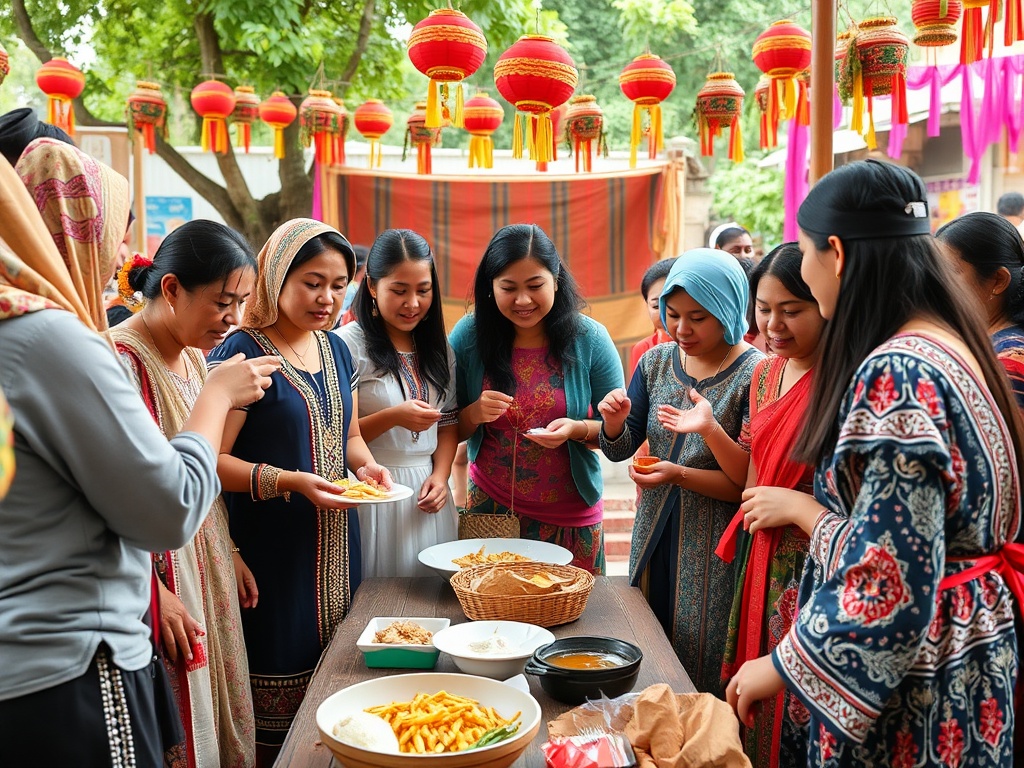
Venturing into a new country can be both thrilling and intimidating. As you step into unfamiliar surroundings, you may encounter unexpected cultural norms, language barriers, and differing social customs. This phenomenon, often referred to as culture shock, can lead to feelings of confusion, anxiety, and homesickness. However, understanding this experience is the first step toward overcoming it and embracing the unknown.
By recognizing that culture shock is a natural part of traveling, you can change your perspective and approach. Instead of viewing these challenges as obstacles, consider them opportunities for growth and learning.
Adapting to a new culture requires intention and effort. Here are some effective strategies to facilitate your transition:
- Research Before You Go: Familiarize yourself with the destination’s customs, traditions, and etiquette. Understanding the cultural context will help you navigate social interactions with confidence.
- Learn the Language Basics: Even a few key phrases can go a long way in breaking down barriers and showing respect for the local culture. Try to learn greetings, thank you, and other essential expressions.
- Engage with Locals: Building connections with local residents can provide invaluable insights into their way of life. Attend community events, join local tours, or volunteer to immerse yourself in the culture.
- Stay Open-Minded: Approach new experiences with curiosity rather than judgment. Embrace the differences and allow yourself to adapt to the local customs.
While it’s essential to step outside your comfort zone, having a few grounding practices can help ease the transition. You might want to consider the following:
| Activity | Description |
|---|---|
| Maintain Routines | Incorporate familiar practices, like morning coffee or evening walks, into your daily schedule. |
| Connect with Fellow Travelers | Join expat groups or travel forums to share experiences and gain support. |
| Document Your Journey | Keep a journal or blog to reflect on your experiences, which can help process feelings of culture shock. |
By balancing the familiar with the unknown, you can create a sense of stability amidst the excitement of exploration. Remember, every journey is an opportunity to learn and grow.

Connecting with locals is one of the most enriching aspects of traveling abroad. These interactions can transform your experience from a mere visit to a profound journey. When you immerse yourself in the culture through local friendships, you gain insights that no guidebook can offer. It is essential to approach these encounters with an open heart and a willingness to learn. Establishing rapport with residents not only helps you navigate cultural differences but also allows you to create lasting memories that will resonate long after your travels have ended.
Participating in community activities is an effective way to bridge the gap between you and the locals. Whether it’s joining a cooking class, attending a local festival, or volunteering for a cause, these shared experiences foster a sense of belonging. By engaging in activities that are significant to the community, you demonstrate your interest and respect for their way of life. Such involvement can lead to friendships that enrich your travel experience and provide a deeper understanding of cultural nuances.
Building connections often requires vulnerability, and this is especially true when navigating a new culture. Don’t hesitate to share your own experiences or struggles; this openness can resonate with locals, creating a bond based on mutual understanding. When you express genuine curiosity about their lives, traditions, and stories, you invite them to share their world with you. Remember, every conversation is a chance to learn, and the more you engage, the more you cultivate a network that enhances your travel experience.
Embarking on a journey to a new country can be a double-edged sword; while the thrill of exploration beckons, the potential for culture shock looms large. As you navigate this exciting yet perplexing landscape, fostering a positive mindset becomes crucial. By shifting your perspective, you can transform challenges into opportunities, enabling you to thrive amidst the unknown.
Resilience is the backbone of a successful cultural transition. Embracing optimism can bolster your ability to cope with the unexpected. When faced with differences that may initially seem daunting, remind yourself that every experience—whether positive or negative—contributes to your personal growth. Acknowledging the impermanence of discomfort allows you to view each challenge as a stepping stone toward enriching experiences. Adopting a mindset that celebrates learning from mistakes can alleviate the pressure to fit in immediately and instead encourage exploration.
Another effective strategy for nurturing a positive mindset is practicing gratitude. By focusing on the numerous blessings and opportunities available to you in a new environment, you can shift your attention away from feelings of isolation or frustration. Consider keeping a gratitude journal where you document daily occurrences that bring you joy—be it a friendly conversation with a local or the beauty of a sunset in your new surroundings. Recognizing the value in these moments fosters a sense of belonging and helps counteract feelings of alienation.
Your journey abroad is uniquely yours, and crafting a personal narrative can serve as a powerful tool for navigating culture shock. Instead of viewing your experience through a lens of fear or uncertainty, frame your story as one of adventure and discovery. Embrace the idea that each unfamiliar situation is an opportunity to learn something new about yourself and the world around you. By reframing challenges as integral parts of your narrative, you empower yourself to face adversity with confidence and grace. This shift in perspective can ultimately lead to a more fulfilling and transformative travel experience.
When traversing the globe, one of the most pivotal aspects of ensuring a smooth transition is grasping the intricacies of social etiquette. Each culture boasts its own set of unwritten rules and expectations that govern behavior, often leading to misunderstandings for the unprepared traveler. Understanding these nuances not only fosters respect but also enriches your travel experience, allowing you to connect more deeply with local communities.
In many cultures, non-verbal cues can convey messages just as powerfully as spoken words. A simple gesture, such as a nod or a smile, may hold different meanings depending on the context. For instance, in some Asian cultures, prolonged eye contact can be interpreted as confrontational, while in Western cultures, it may signify confidence. Being aware of such differences can prevent awkward situations and help you engage more meaningfully with locals.
Another critical element to consider is the concept of personal space. Cultures vary widely in their perceptions of physical proximity during interactions. In some Middle Eastern and Latin American countries, a closer distance may be the norm, symbolizing warmth and friendliness. Conversely, in countries like Japan and Scandinavia, maintaining a certain distance is often seen as a sign of respect and privacy. Understanding these norms is essential to avoid discomfort and to show that you honor their customs.
Dining is often at the heart of cultural exchanges, yet it can also be a minefield of etiquette mistakes. In certain cultures, such as in many Asian countries, finishing every morsel on your plate is a compliment to the host, while in others, like those in Western cultures, it may signify that you are still hungry. Familiarizing yourself with dining etiquette—from how to hold your utensils to appropriate toasting customs—can greatly enhance your social interactions. A small faux pas can lead to unintended offense, so taking the time to research the basics can go a long way in creating positive experiences.
Before embarking on your journey to a new destination, taking the time to research its cultural context can significantly enhance your travel experience. Understanding the historical background, societal norms, and local customs allows you to approach interactions with a sense of respect and awareness. This preparation can ease feelings of culture shock by providing you with a foundational understanding of what to expect. By immersing yourself in the cultural stories and traditions of the place, you not only equip yourself with knowledge but also show locals that you value their heritage.
As you prepare for your travels, it’s crucial to cultivate a mindset of open-mindedness. Being receptive to new ideas and experiences can dramatically impact your adaptability to a different culture. When you approach situations without preconceived notions, you create opportunities for genuine connections and deeper understanding. Embrace the philosophy that every encounter is a chance to learn something new. By actively engaging with diverse perspectives, you can transform potential discomfort into enriching encounters that broaden your worldview.
Your preparations should also include practical steps to ensure cultural sensitivity. Consider learning key phrases in the local language, as this small effort often goes a long way in building rapport. Mastering simple greetings or expressions of gratitude can endear you to locals and demonstrate your commitment to embracing their culture. Additionally, familiarize yourself with local etiquette, such as appropriate dress codes or dining customs, which can prevent unintentional faux pas. These proactive measures not only prepare you for social interactions but also empower you to navigate cultural landscapes with confidence and respect.
Traveling to a new country can be exhilarating, yet the journey often comes with its share of challenges. One of the most significant hurdles travelers face is finding a comfortable balance between respecting personal space and embracing new experiences. As you navigate through unfamiliar environments, understanding these dynamics becomes crucial to your overall experience, allowing you to immerse yourself in the culture while maintaining a sense of security.
Personal space is a concept that varies widely across cultures, influencing how individuals interact with one another. In some regions, such as many parts of Europe, people may prefer a certain degree of distance during conversations, reflecting a desire for privacy. In contrast, cultures in Latin America or the Middle East often emphasize closeness as a sign of warmth and friendliness. Recognizing these differences is essential for fostering positive interactions. Embracing the local norms while remaining aware of your own comfort levels can create a more harmonious experience.
While it’s important to engage in new activities and experiences, it’s equally vital to listen to your own boundaries. Start small by participating in local events or activities that feel comfortable to you. For example, attending a cooking class can be a fantastic way to connect with locals while still having a structured environment that provides comfort. This gradual approach allows you to stretch your boundaries without overwhelming yourself. As you grow more accustomed to your surroundings, you may find yourself ready to tackle more spontaneous adventures, such as exploring local markets or joining community gatherings. This balance of stepping outside your comfort zone while retaining elements of familiarity can significantly enhance your adaptability.
Ultimately, the key to finding your comfort zone lies in self-awareness and flexibility. By being mindful of how personal space is perceived in different cultures, you can navigate social interactions with greater ease. Coupled with a willingness to embrace new experiences, this understanding can transform your travels into meaningful journeys of personal growth and connection.
Traveling to a new country is not just a physical journey; it is an emotional expedition that tests your resilience. The emotional challenges that arise during this transition are often underestimated, yet they play a crucial role in shaping your overall experience. Learning to cope with the feelings of anxiety, disorientation, and homesickness is vital for transforming potential obstacles into opportunities for growth. Here, we will explore how to harness resilience and navigate the emotional landscape of culture shock.
As you immerse yourself in a new culture, the initial excitement can quickly shift to a whirlwind of emotions. You may feel a sense of loss for your familiar surroundings, leading to moments of sadness or frustration. Recognizing that these emotional fluctuations are normal is the first step toward building resilience. Embrace the idea that discomfort often precedes personal growth. By acknowledging your feelings rather than suppressing them, you create space for healing and adaptation. To foster resilience, remind yourself that every challenge faced is a stepping stone toward understanding and integration into the new culture.
To navigate the emotional challenges of culture shock effectively, it is essential to equip yourself with practical coping strategies. One powerful approach is to engage in mindfulness practices that help ground you amid turmoil. Techniques such as meditation, deep breathing exercises, or journaling can serve as anchors, allowing you to process emotions and reflect on your experiences. Additionally, seeking support from fellow travelers or local friends can significantly alleviate feelings of isolation. Sharing your journey and hearing others’ stories fosters a sense of community, reinforcing the notion that you are not alone in your struggles. Engaging with local traditions or activities can also facilitate emotional healing, as it allows you to reconnect with joy and curiosity in the face of change.



